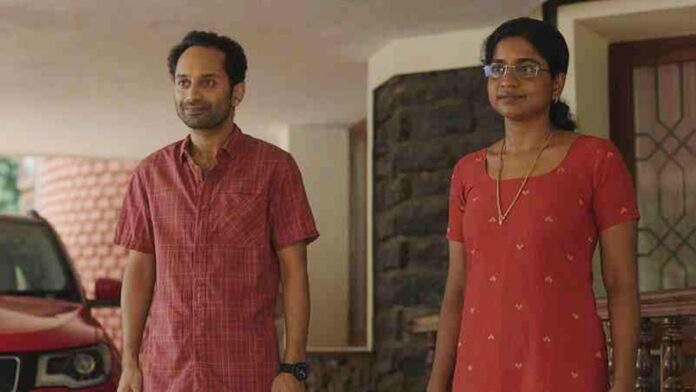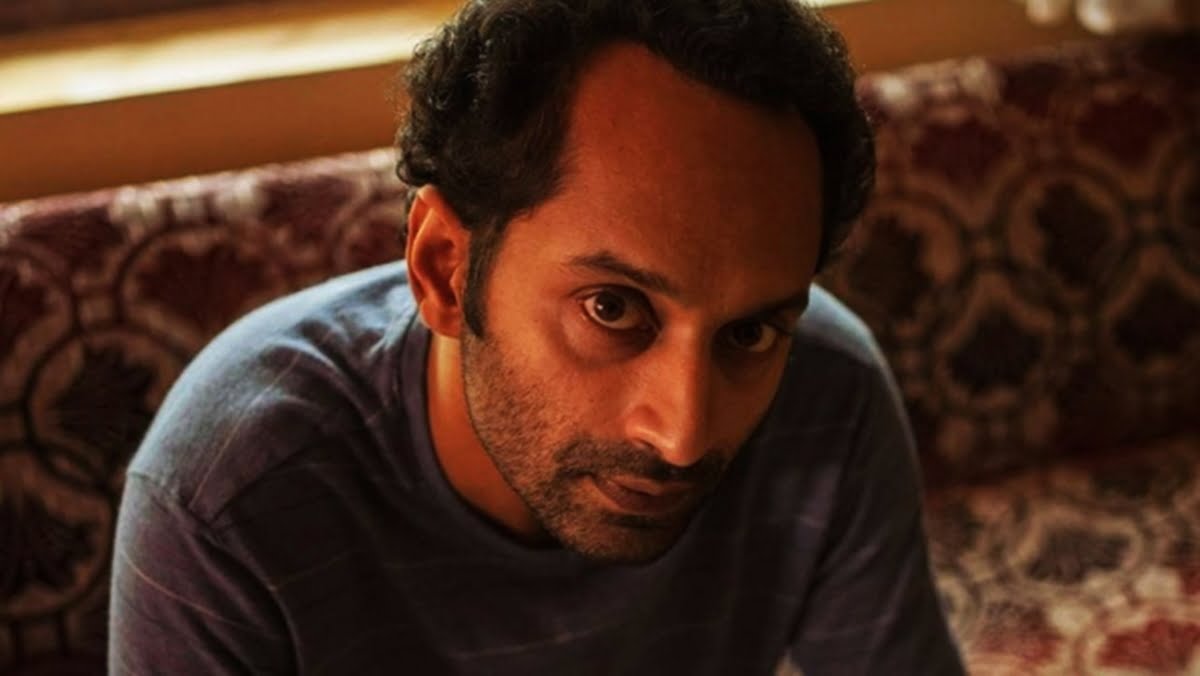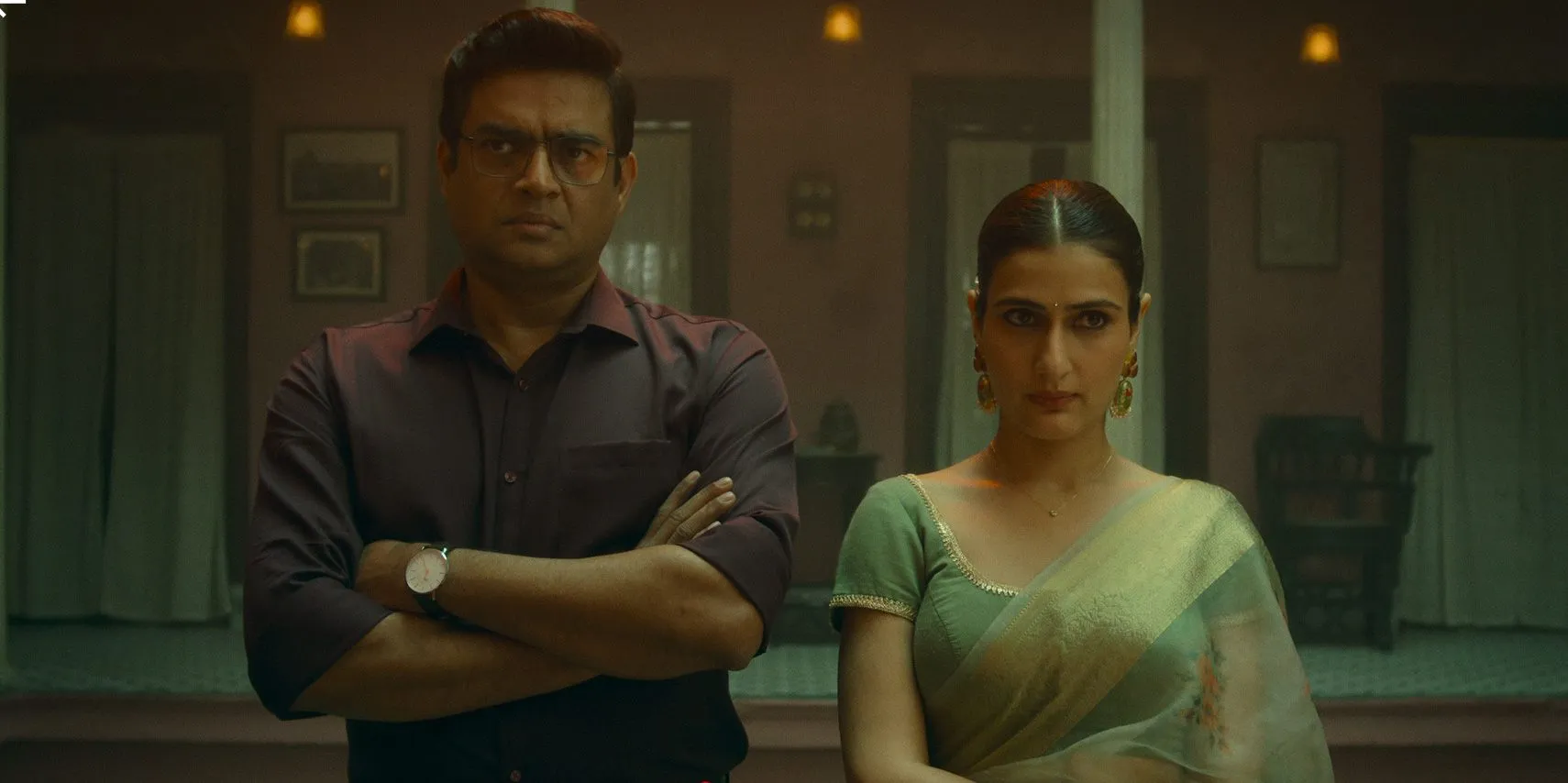Inspired from Shakespeare’s Macbeth, Dileesh Pothan’s Joji is a landmark in the area of dark comedy and drama. If we were to draw a link to Shakespeare’s Macbeth, it would be such that in both the stories the ‘hero’ indulges in viscous behavior that leads to a string of events racing out of his control, eventually leading towards a downward spiral and compelling him to do worse and worse. While Macbeth is an able-bodied soldier driven by prophecy, crazed ambitions and instigation by Lady Macbeth, Joji played by Fahad Faasil is a sluggish person who is spurred to action by a deep-seated anger, a desire for revenge in the face of humiliation and a reckless conquest to break free from what the shackles of the family patriarch Kuttappan Panachel (Sunny PN).
Dileesh Pothan’s Joji is more character-centric than story-driven. The movie explores and exemplifies a brilliant display of emotions that have long been suppressed and left unexpressed by family members under the tyranny of their father. It departs from the conventional imagination associated with death in a domestic space and naturally brings out reactions from its characters that might seem anomalous. The narrative withdraws from the Indian norm of portraying children as a dutiful heritage of their parents.
Dileesh Pothan’s Joji is more character-centric than story-driven. The movie explores and exemplifies a brilliant display of emotions that have long been suppressed and left unexpressed by family members under the tyranny of their father. It departs from the conventional imagination associated with death in a domestic space and naturally brings out reactions from its characters that might seem anomalous. The narrative withdraws from the Indian norm of portraying children as a dutiful heritage of their parents.
The essence to Joji’s character is the fact that Joji is a forlorn child who is anointed a ‘second rate loser’ by his father. The film also sheds light upon how assault and parental disappointment can emotionally petrify children towards their parents and how this is further projected on their relationship with them. Joji, precisely explores this theme and brings to the audience the catastrophic repercussions of parental negligence, assault and violence.

When Kuttappan grievously falls ill, the reactions in the household range from relief in certain quarters to fear of how his business will now run in his absence to the anxiety revolving around his will. Pothan reflects on the true feelings of the Panachel sons after their father suffers a stroke. The fiery desire to eat an egg curry by Joji, Jaison’s (Joji Mundakayam) desire to use the geyser installed in Kuttapan’s room, the rush to burst firecrackers on his father’s funeral by Jomon (Baburaj) remark on the genuine feelings of the sons towards their father’s death.
The ingenious role of Bincy played by Unnimaya Prasad is explicitly traceable in the crime drama. Bincy, who is the presumed Lady Macbeth of Joji camouflages her frustration. Barring one outburst, Bincy does not betray the swirl behind her composure. Bincy, though assigned with some agency, is often seen catching up on the idiosyncrasies of patriarchy manifested in the Panachel household. With agony against the lack of acknowledgement for her contribution in the Panachel household, we see Bincy often confined in the kitchen area, thus, symbolizing her trivial significance in Kuttappan’s kingdom. However, post Kuttappan’s death, we witness Bincy outside the corridors of the kitchen reclaiming and asserting her space in the house.
There is an informal and consequential relationship between Joji and Bincy, who are convinced to act upon their shared contempt against Kuttappan. The conversations in the kitchen area provide them reassurance of their complicity in crimes. Bincy is shown assisting Joji in his attempt to kill his father, by being a loyal accomplice to his crimes. Perhaps, Joji is a reflection of Bincy’s camouflaged demeanour, powerfully captured in a scene when the director shows a cross reflection of Bincy and Joji in the mirror.
Also read: Joji Review: Bincy Shines The Brightest In Fahadh Faasil’s Latest

The opening scene in the movie that shows a delivery person couriering a package of an air gun at the Panachel house, is detrimental to the narrative in the sense that it is precisely the reason because of which Joji’s dark crimes are exposed. Popy, the youngest member of the house waits impatiently for this piece of weaponry that eventually is used by Joji to kill his elder brother and Popy’s father Jomon. One of the elements that foregrounds and intrigues the audience while watching Joji is the pensive background score that plays along the various scenes.
The music augments the dark tragedy that follows in the Panachel household after the patriarch PK Kuttapan suffers a stroke. It is an orchestral piece, a spontaneous blast of happiness with an undercurrent to it. The music unveils the sinister motives of Joji and the greed that fills the other members of the family. The melancholy in the music is a premier for the spirit of Joji. One of the most applauded scenes in the movie is one in which Bincy asks Joji to not keep the funeral meeting waiting, and glares into Joji’s eyes only to later advise him to wear a mask. The dialogue is a metaphor for what Joji has become.
One of the most applauded scenes in the movie is one in which Bincy asks Joji to not keep the funeral meeting waiting, and glares into Joji’s eyes only to later advise him to wear a mask. The dialogue is a metaphor for what Joji has become.

Part of the dorky comedy in the movie is to challenge how long Joji’s high wire act will be sustained and how far he can push himself without dropping said mask. Joji’s indolent eyes, rather than conventionally being windows to his inside world are everything that he is not. Looking into Fahadh’s eyes, one gets a sensation that someone else is peeking through him.
Further, the crime drama set in the high ranges of in Kottayam in Kerala, provides an appropriately uncanny ambience to the story. In such places, one finds their emotions tipping over unexpected territories. Similarly in Joji, we see a certain amount of significance given to the areas around the Panachel house. The fishless pond, the canal, the porch and the kitchen area with dim lighting bring a spectral appearance to the film and its characters. The film aesthetically captures the ghostly pretense of Joji and music adds texture to it.
Also read: From Veruthe Oru Bharya To The Great Indian Kitchen: Female Identity In The Domestic Space
The diabolical intentions and actions of the characters are portrayed with a mundanity and normalcy that does not allow the audience to judge the characters for their misdemeanours. Thus, they are not portrayed as stereotypical villains but are shown as normal people who commit crimes with an air of everydayness. This is cinematically projected when Joji craftly works on his plan to kill his father during the day’s light with the sound of washing machine running in the background.
The contrast between the burning wish to grow up, to be treated as an adult, and the inevitable pressures that come with being a grown-up, is one of the film’s sustained themes and it plays out right from the first set of sequences. This is portrayed through Joji’s character when he is disregarded while making any important decisions for the Panachel family especially in Kuttappan’s presence. Nevertheless, Kuttappan’s absence in the house provides Joji the necessary liberty to retain power and position in the family.
With an intention to capture absolute power, the direful intentions of Joji acquire the might and the motive to be executed. We also see that Joji asserts the minimal authority he acquires in the Panachel family onto Popy (Jomon’s son) and also resents Popy in some ways. Joji’s insulting gesture to pick and drop the hand of his father signifies the releasing of power that Joji is willing to capture after his father’s death. Nevertheless, Joji fails to reflect on his lethargic attitude that keeps him at the receiving end of disdain, mistrust and disappointment within the Panachel household.
Unlike Joji, Jomon is a grizzly bear steeped in Brandy and is the closest resemblance of his father Kuttappan. Jomon is justful for a man who reaches down his very roots to organise a religious service for his paralysed father, and later condones and acts on the barbarity of organised religion. The offhand informality that Kuttappan shares with his son Jomon is not readily extended to his other children. We see a famiscile bond between the two, especially observed when Kuttappan swiftly takes the towel off Jomon’s head, fastening it around his waist.
However, the toxic masculinity exhibited in all the male characters, Kuttappan being the primary bearer of it, limits them from sharing an emotional bond towards one another. In the process, the film passes a commentary on why domestic spaces once turned noxious, are burning grounds for crimes that one has been circumstantially compelled and at the same time chosen to commit. This does not justify Joji’s crimes, but rather provides a critical insight on the ramifications of living in a dysfunctional house and with a father that assaults and resents his child. Further, the movie also makes a statement on the use of air pellets, and how its violent use in Kashmir kills and causes severe injuries to the natives and civilians.
Joji is a depiction of the psychosis in which blood is spilled but life spills out too. In the climax, after Joji decides to take his life we see him in the same condition as his father; a recall and a remark that Joji has inherited the ancestral evils of his father. Joji, with its whimsical comedy, is a sharp tale of immorality in a house of intrigue. However, the difference between the other characters and the protagonist Joji is that while others are capable of questioning their morals, Joji draws no boundaries and is thus, unaffected by moral standards.
All images are screengrabs from the movie available to watch on Amazon Prime.
About the author(s)
Mansi Bhalerao is an Ambedkarite feminist, an undergraduate at Miranda House. She is an aspiring student of Sociology, trying to navigate and assert her praxis.




